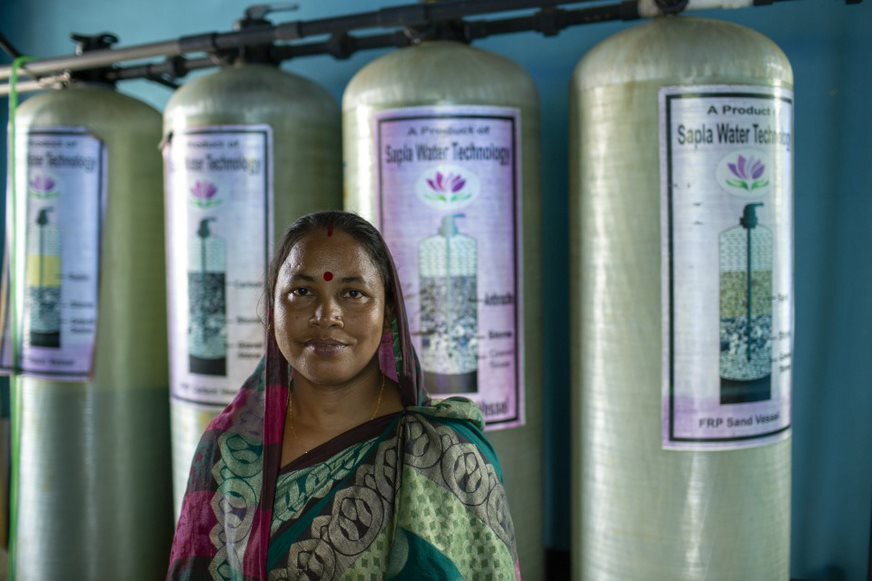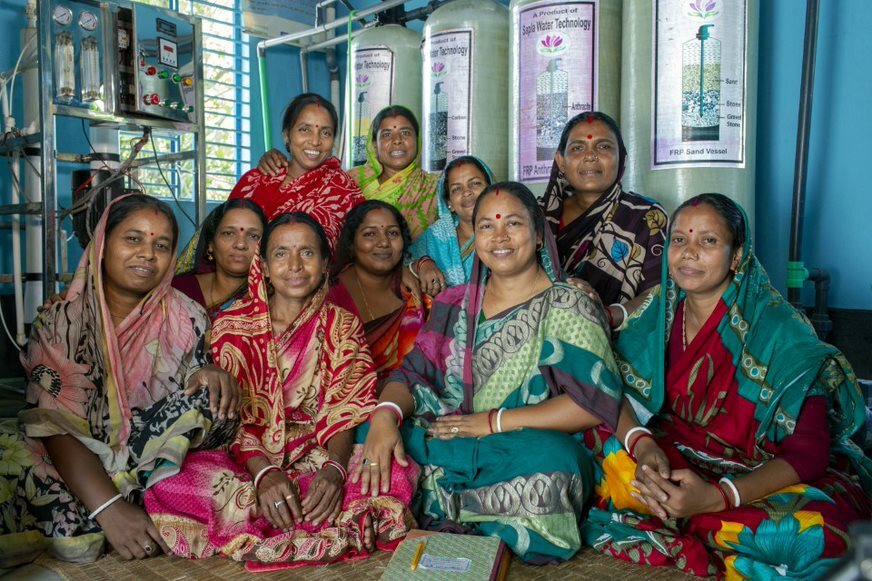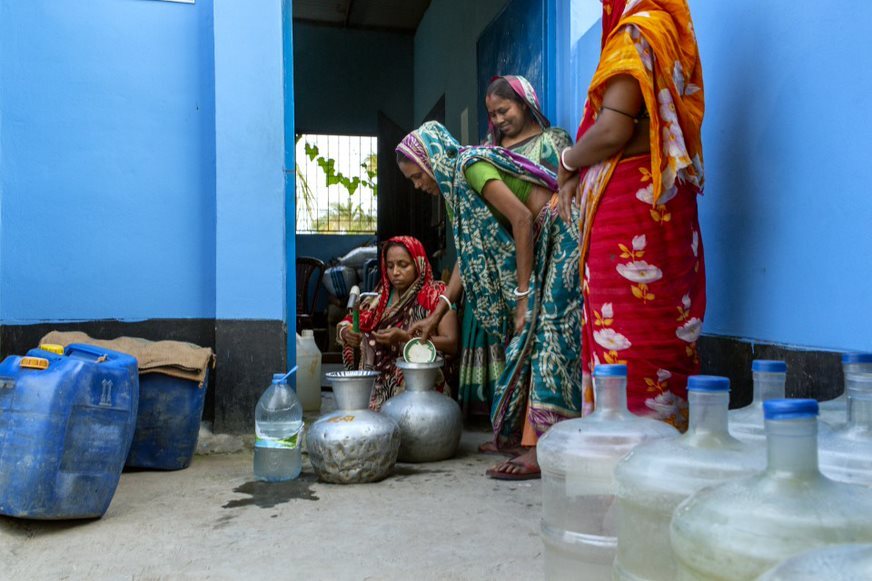Female entrepreneurs promoting climate-resilient WASH services in Bangladesh
Organization: WATERAID BANGLADESH
Donor: SEVERN TRENT WATER
Beneficiaries: 100000
In the south west of Bangladesh, local female entrepreneurs from marginalized households are helping to expand safe water supplies in communities that are increasingly vulnerable to the effects of climate change.
In Assasuni Upazila, much like other parts of the coastal belt in Bangladesh, it has become increasingly difficult to access safe and clean drinking water due to climate change. And it is not only the immediate effects of the frequent and intense cyclones, storm surges and rising sea levels that are ruinous, as the increase in salinity intrusion is also having a devastating, long-term impact on local communities.
Maladaptation to climate change has increased communities’ vulnerability. In response to rising salinity levels in the 1980s many people began to convert farmland, which was no longer suitable for grazing, into aquaculture farms for shrimp and crabs. Unfortunately, as shrimp farmers required sea water to be piped into the ponds, this alternative livelihood intensified the water contamination, increasing and spreading salinity.
The combined result of climate change and maladaptation has been catastrophic, with a 2019 survey by WaterAid Bangladesh indicating that only 28% of the ponds met the drinking water standards set by the World Health Organization and the Bangladesh Department of Public Health Engineering.
In 2019, WaterAid, which had been working on providing water, sanitation, and hygiene (WASH) services to the poor in Bangladesh for over 20 years, together with local NGO Rupantar, received funding from UK water company Severn Trent Water to provide water services to 100,000 people across five communities in Satkhira. The initiative – Water Entrepreneurship for Women’s Empowerment (WE-WE) – focused specifically on training vulnerable groups, particularly women, to manage the water treatment plants that purify or desalinate salt water through a semipermeable membrane. These plants are particularly effective in rural areas, and can purify up to 500 liters of saline water per hour, producing around 1,000 to 4,000 liters per day, depending on demand.
At the heart of the WE-WE approach is the idea that providing infrastructure to withstand a cyclone or tidal surge alone is not enough to create resilience in the WASH sector. What is required is a holistic approach, with strong government leadership, well-functioning and accountable institutions, sufficient finance, reliable data and updated plans, active and empowered people, and measures to address deeply ingrained gender and social inequalities.
The difference this approach has made can be seen on the ground. For 20 years after marrying aged 17, Gita Roy walked long distances every day to fetch water for her family of 14. She was not alone, as many women like her in the village of Tengrakhali had the same task, which coupled with other household responsibilities, left them with little time for employment, education, or participation in decision-making in the family or wider community.

After hearing about WaterAid Bangladesh’s work, Gita reached out to the organization through Rupantar, asking for help with her community’s water situation. Following Gita’s request, WaterAid initiated a preliminary participatory assessment to gather insights from local stakeholders, which identified the priority challenges to be lack of drinking water, poor sanitation, lack of jobs, lack of river embankments, and high soil and water salinity.
Gita and a group of local affected women lobbied hard for a reverse osmosis plant, to be managed by women, as a first step to address water shortages. This was initially met with some skepticism and objection from many community members, who held the view, common in rural areas, that running a business was a man’s preserve. After several months, however, the women, supported by WaterAid and Rupantar, were able to convince the community of the merits of building the plant.
A women's group called Golap Mohila Dal (Rose Women’s Group) was established by Gita and five women to run the plant. WaterAid and Rupantar helped to formalize this as a business, and an agreement was signed with Rupantar to provide training to maintain and operate the plant. WaterAid covered the €14,500 capital costs for construction, while Golap Mohila Dal contributed 20 percent for an Operation and Maintenance (O&M) fund, and for the 15-year land lease for a parcel of land on which the plant was constructed.

The Moricchap Drinking Water Plant for Tengrakhali village was officially opened in February 2020, and local people can now get clean water for €0.005 per liter – without having to pay additional transport costs. The Golap Mohila Dal ensured an uninterrupted water supply and went door-to-door to advertise and register interested households. Those that registered received a further discounted price, which helped even the most financially constrained families. People started visiting the plant regularly, and Golap Mohila Dal was soon selling enough water to make sufficient profit to return its initial 20 percent contribution to the O&M fund, in addition to conducting maintenance when required.
Water Entrepreneurship for Women’s Empowerment (WE-WE) has had a significant positive impact, enhancing the resilience of vulnerable communities facing extreme climate impacts, and creating a climate adaptation solution that both reduces structural inequalities and ensures sustainable ownership and decision-making at the local community level.
Cultural taboos have been addressed and gender discrimination reduced. Today Gita Roy is even more active in the local community, having successfully stood for elections on the Kadakati Union Parishad (Council). “As a woman, I want to keep working to empower our deprived women to have more control over their lives,” she says. “Having my own identity, earning my own income, and not depending on anyone for my needs is very satisfying. It’s time for women to stop confining themselves and their potential within their households only."

WaterAid/ Drik/Farzana Hossen